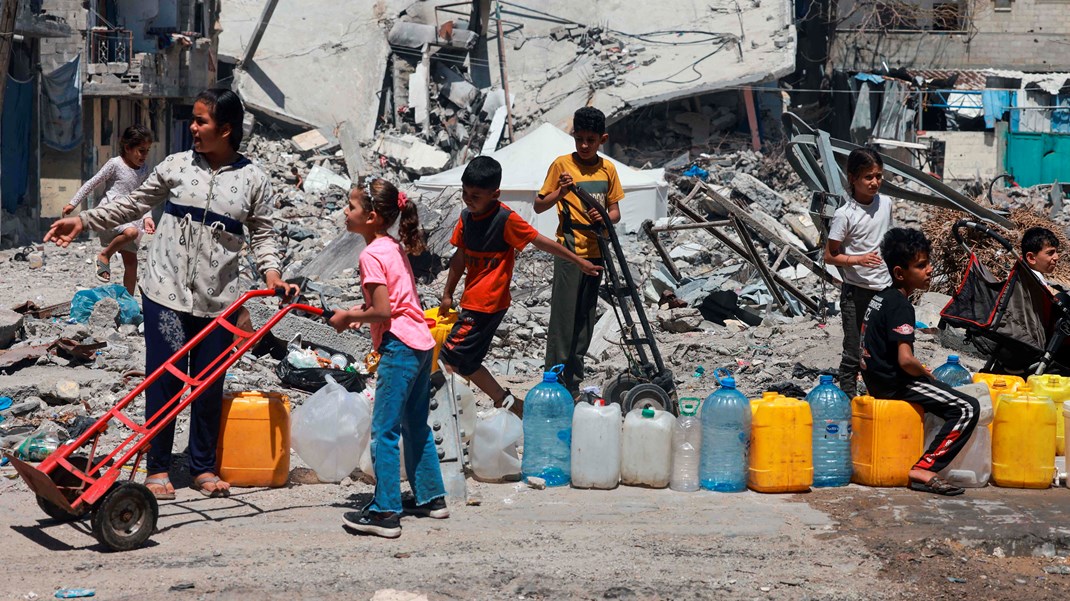Afghanistan takes major step to address undernutrition
Launching of the National Nutrition Strategy
Kabul, 21 March 2019: Afghanistan took a critical step in efforts to fight one of the highest undernutrition rates in the world yesterday, with the launching a National Nutrition Strategy that provides the roadmap for partnership, investments and action.
Nearly two million children under the age of five suffer from ‘chronic undernutrition’, which results in stunted growth and delayed mental development. About 4 out of 10 children are stunted and are likely to suffer from irreversible physical, mental and social development loss, impacting significantly on school achievement and economic productivity. An estimated 1 in 10 children are wasted, making them more vulnerable to disease and death. Approximately 1.4 million children under five years of age require treatment for acute malnutrition annually, including about 600,000 who suffer from severe acute malnutrition (SAM). An estimated 3 out of 10 adolescent girls (31%) are anaemic. Moderate to severe anaemia can adversely affect growth and development, cognitive and learning capabilities among young people. The good news is, that we know what works.
In 2017, Afghanistan was the 60th country to become a member of the Scaling up Nutrition Movement and the Afghanistan Food Security and Nutrition Agenda was launched – a multi sector platform to address malnutrition. Furthermore, the Nutrition Counsellor initiative – which has created more counselling opportunities for mothers and caregivers – was approved to be scaled up to all 34 provinces. Finally, nutritional services are at the core of health services delivery throughout the country and this is a chance to highlight the importance of these services. This strategy could therefore not have been more timely and relevant, in our collective and concerted efforts to address malnutrition at all levels, proving a solid roadmap for ‘**Optimal nutritional status for all citizens to reach their full potential in Afghanistan’**.
‘We have wide political support being at the highest level, being either the President of Afghanistan, who endorsed nutrition as a major agenda, or, the CEO, Chief Executive Officer, who is leading the major nutrition meeting himself’, says Dewa Samad, Deputy Minister, Ministry of Public Health Afghanistan.
The UN in Afghanistan focuses on strengthening understanding and support (internally and externally) for why nutrition is a crucial investment during the critical first 1,000 days of a child’s life. This is important, not only for the health and wellbeing of women and children but also for the overall development and economy of the country.
Undernutrition is a symptom of limited access to quality basic services such as health care, safe water and proper sanitation, as well as good hygiene and nutrition practices. Poor feeding practices, such as discontinued breastfeeding, as well as the lack of appropriate and diversified foods have also been principal contributing factors to the ongoing nutritional situation. Although the basic availability of food alone cannot address this issue, the availability and use of child appropriate nutritious foods can make a difference in meeting their specific needs.
Speaking on the day of launch, on behalf of the One UN for Nutrition – UNICEF, WFP and WHO- UNICEF Deputy Representative, Sheema Sen Gupta said "This strategy is a heartening example of partnership between Government, the UN, Donors and the private sector that will serve the best interests of the people of Afghanistan." "We are grateful for the enormous efforts made by the Ministry of Public Health in tackling undernutrition by ensuring that preventive and treatment nutritional services are reaching women and children."
Translating this strategy into concrete budgeted action is an important next step if we are to make gains in addressing undernutrtion in Afghanistan. Longer term development and investments in prevention are essential to improve and sustain the nutritional outcomes of families and communities. Strengthening community and health systems is key towards creating the enabling environment and enhancing the resilience and ability of households towards improved nutrition.
In implementing the National Nutrition Strategy, Afghanistan can secure the opportunity for children to be well nourished in life so that we can protect and secure its future – as the greatest investment and the prosperity of this nation lies in its children.
Notes for editors
SOME 2 MILLION CHILDREN UNDER AGE 5 IN AFGHANISTAN CANNOT DEVELOP PHYSICALLY OR MENTALLY AS THEY SHOULD.
Stunting – which results from chronic nutritional deficiency and is measured in terms of a child’s height at a age – causes irreversible physical and mental damage. Stunted children cannot learn, earn or contribute as much to the future of their families, communities and countries.
Children in the poorest communities are more than twice as likely to be stunted as children than in the richest communities. Stunted children are also more likely to contract diseases and lack access to basic health care, and to not attend school. Girls who are stunted are more likely to give birth to babies who have a higher chance of becoming stunted.
Globally, one third of children in rural areas are stunted, compared with one quarter in urban areas. Targeting the needs of the most vulnerable children is crucial in order to break the cycle of poverty.
PROPER NUTRITION DURING THE 1,000-DAY PERIOD FROM A MOTHER’S PREGNANCY UNTIL A CHILD’S SECOND BIRTHDAY CAN ENSURE A STRONG START.
Proven, low-cost solutions can reduce stunting and other forms of undernutrition. These include: improving nutrition for mothers and adolescent girls; promoting exclusive breastfeeding for the first six months of life as well as timely, safe, appropriate and good-quality complementary food thereafter; and providing adequate amounts of vitamins and minerals.
Rapid physical and mental development occurs starting in pregnancy and until age 2. The damage caused by stunted growth during this period is largely irreversible. After 2 years of age, a child who gains a disproportionate amount of weight may face an increased risk of becoming overweight and developing other health problems.
Prevention and treatment of malnutrition require access to good food and adequate attention to health and care. Improving access to safe water, promoting hygiene and preventing, treating diseases and supporting the use of nutritious foods are equally important. Nutrition can be improved through education, social safety nets and other poverty eradication measures. UNICEF and WFP work with governments and partners in many of these areas.
ADDRESSING STUNTING CAN BREAK THE CYCLE OF POVERTY AND BOOST THE SOCIAL AND ECONOMIC DEVELOPMENT OF NATIONS.
Stunting negatively affects school attendance and performance. Recent data suggests that stunting and undernutrition can cause nations to lose at least 2 to 3 per cent of their gross domestic product. On the other hand, leading economists have estimated that every dollar spent to reduce chronic malnutrition can have a US$13 payoff.
Media Contacts
Feridoon Aryan
Communication Officer
UNICEF Afghanistan
Tel: +93 (0) 730 72 71 15
Email: [email protected]


